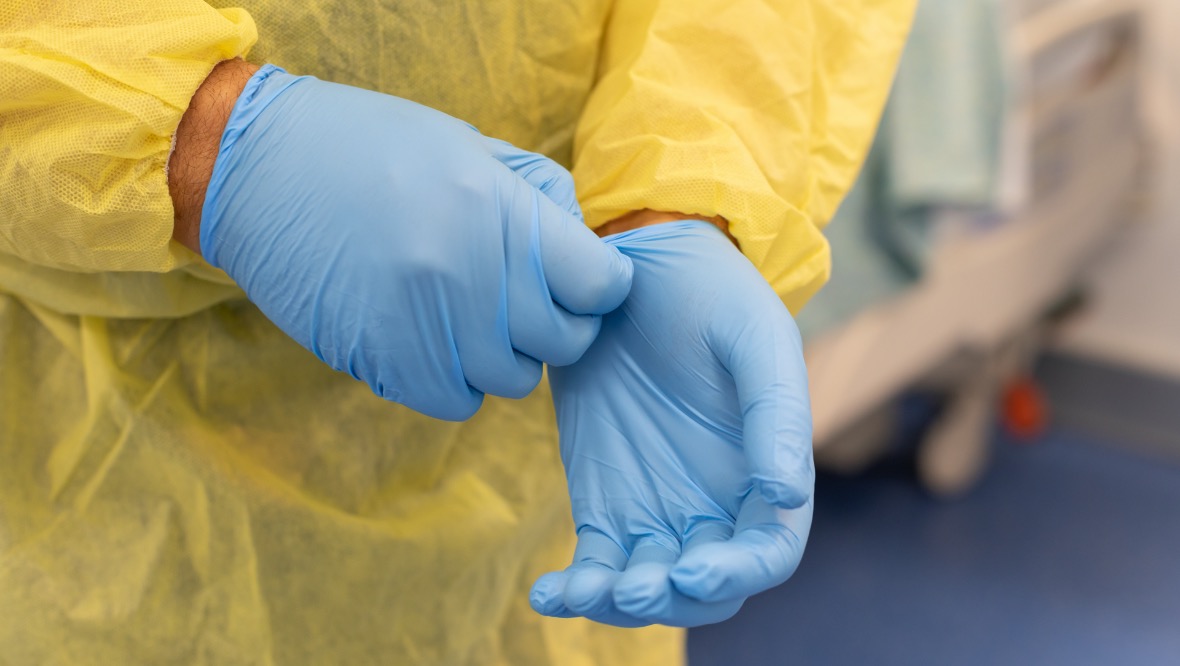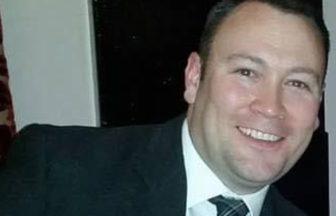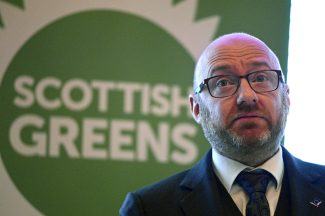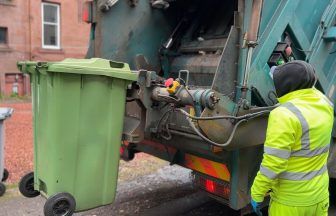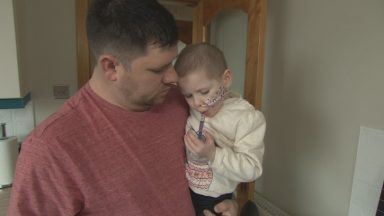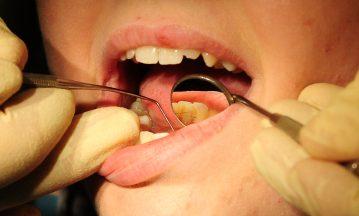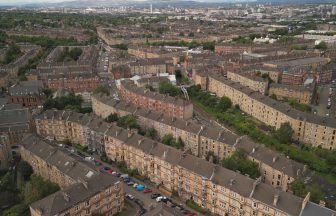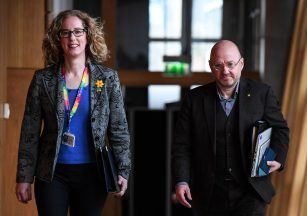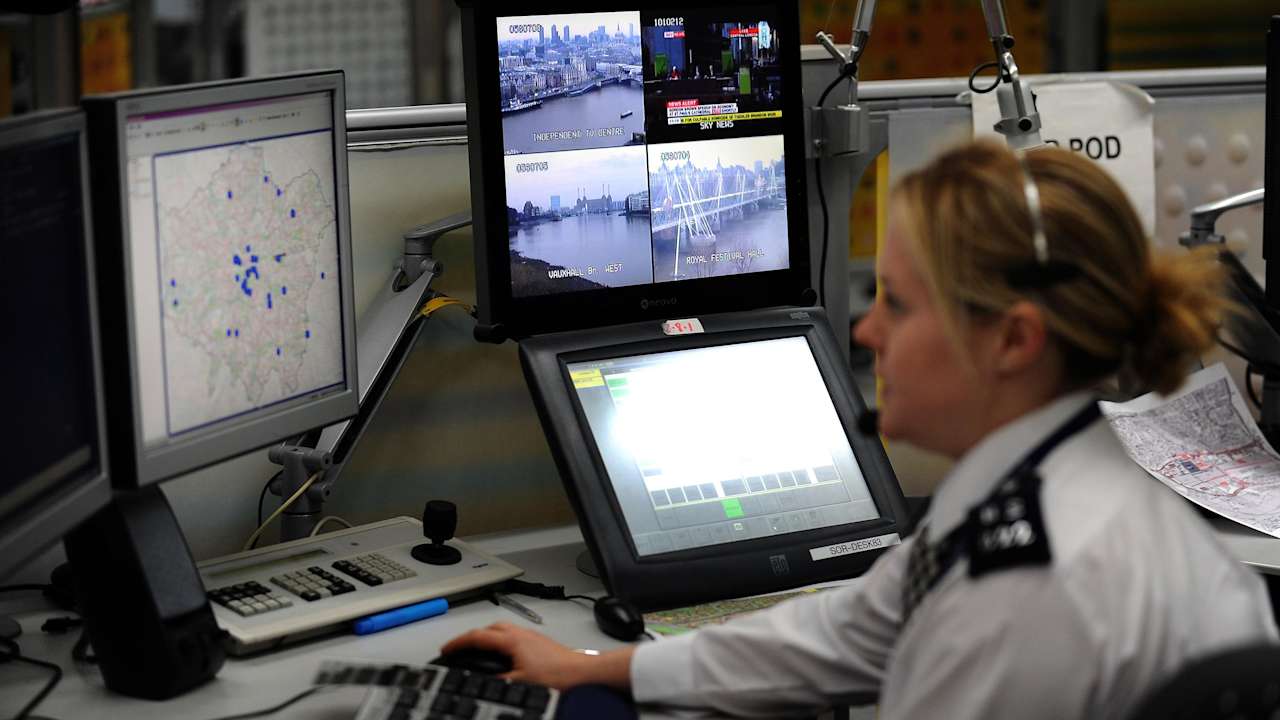Pandemic planning failures by the Scottish Government may have contributed to PPE shortages and stretched social care capacity, the Auditor General has found.
Scotland’s initial response to Covid-19 was based on preparations for a major influenza pandemic, with three government training exercises – named Silver Swan; Cygnus; and Iris – carried out in the past five years.
Specific recommendations emerged from the pandemic preparations – including securing personal protective equipment (PPE) and increasing the “capacity and capability of social care to cope during an outbreak”.
But a new report by Scotland’s Auditor General Stephen Boyle concludes the Scottish Government was “slow” at implementing the improvements from the simulations in some of the areas that would become a “significant challenge” during the pandemic response.
While the report praises the government’s fast response to the coronavirus outbreak, it states that the Scottish Government “could have been better prepared to respond to the Covid-19 pandemic” and lessons must be learned.
“It based its initial response on the 2011 UK Influenza Pandemic Preparedness Strategy but did not fully implement improvements identified during subsequent pandemic preparedness exercises,” it states.
Failures include a lack of guidance about how Scotland’s social care sector could cope with a flu pandemic, despite being identified as a priority.
Health secretary Jeane Freeman said the Scottish Government will consider the report’s findings carefully.
She said: “As Audit Scotland acknowledge, the COVID-19 pandemic was caused by a new disease with unknown characteristics, and like governments around the world, we have had to respond rapidly to the emergence of an entirely new public health threat.
“At no point has our NHS been overwhelmed, which is testament to swift action and extraordinary efforts of everyone involved.”
Jeane Freeman, Health secretary
“At the beginning of the pandemic we put in place longstanding plans to double and then quadruple capacity of our intensive care units. We reconfigured the SEC in Glasgow into a quality critical setting, the NHS Louisa Jordan within three weeks.
“Emergency, urgent and trauma services have continued through the pandemic with as much other non-Covid care as possible and our frontline health and care staff have worked day-in and day-out to care for people across Scotland throughout this unprecedented crisis.
“At no point has our NHS been overwhelmed, which is testament to swift action and extraordinary efforts of everyone involved.”
Audit Scotland now recommends the government publishes national pandemic guidance for the health and social care sector as a priority, including lessons that have been learned during the Covid-19 pandemic and the previous planning exercises.
Actions taken to prevent Scotland’s NHS from becoming overwhelmed during the pandemic means the health service is now facing a “substantial backlog of patients”, according to the report.
It adds: “It will be hard to deal with this backlog alongside the financial and operational challenges already faced by boards.”
Commenting on the report, Mr Boyle said: “NHS staff have shown extraordinary commitment to treating and caring for Scotland’s people during a pandemic that has highlighted the need to deal with long-standing health inequalities.
“Getting the full range of health services back up and running will be challenging.
“But there are clear lessons to be learned from the pandemic, both in how the country could have been better prepared and in the innovation that we’ve seen.
“It’s essential that these advances are now retained and built upon.”
The Scottish Government launched a consultation on some draft advice between July and September 2019.
One of the simulation exercises “highlighted the need for substantive progress in the area of PPE availability and use across Scotland” with clarity about accessing a stockpile of equipment identified as another priority.
But no guidance was ever published.
“There is obviously some concern that the Scottish Government could have been better prepared and acted quicker on learning from various planning exercises.”
Dr Lewis Morrison, British Medical Association (BMA) Scotland chairman
British Medical Association (BMA) Scotland chairman, Dr Lewis Morrison, said: “There is obviously some concern that the Scottish Government could have been better prepared and acted quicker on learning from various planning exercises.
“This would seem particularly true on doctors’ experiences of PPE – where early concerns needed to be rapidly addressed.
“Going forward, lessons such as these must be learned so that such issues are addressed before they arrive, given the safety of the staff caring for patients must be at the top of the list of priorities during times like this.”
Dr Morrison warned restarting services will be a “substantial challenge” and said: “A priority here must be giving staff the break they need to recover from the past year – we will not be able to return the NHS to a more normal state if we simply drive staff even harder to meet pent-up demand for care and risk forcing them out of the workforce for good.”
He added: “Finally, the fact that the death rate from Covid-19 is more than twice as high in the most deprived areas – 183 per 100,000 population – than in the least deprived areas – 79 per 100,000 population – underlines the pressing need to address the scandal of health inequalities in Scotland.
“Your life chances should not be determined by the postcode you were born in and we urgently need sustained action across government to deal with that.”
The report also referenced a Royal College of Nursing (RCN) survey from April that found 47% of nurses in high-risk areas were asked to reuse PPE, and a quarter had not had their mask fit-tested.
“Going forward, we need to address the opportunities to work differently and the first-hand learning and experience of nursing staff and their colleagues across health and social care must be at the heart of this.”
Susan Aitkenhead, RCN Scotland director
Susan Aitkenhead, RCN Scotland director, said: “Lessons need to be learned and the immense pressure that staff have faced over this sustained period must be recognised.
“We know nursing staff are concerned for their and their colleagues’ wellbeing and the long-term risks to their physical and mental health, including PTSD and long Covid.
“Going forward, we need to address the opportunities to work differently and the first-hand learning and experience of nursing staff and their colleagues across health and social care must be at the heart of this.”
The report’s publication comes after First Minister Nicola Sturgeon revealed on Tuesday that had Scotland recorded a further 49 deaths from coronavirus and 773 positive tests in the previous 24 hours.
It brings the death toll under this measure – of people who first tested positive for the virus within the previous 28 days – to 6764.
A Scottish Government spokeswoman said: “As noted in the report, Scotland was involved in three pandemic preparedness exercises and our Pandemic Flu Preparedness Board was established in 2017 to work with the NHS, UK Government and other stakeholders in preparation for pandemic flu.
“However, Covid-19 is not pandemic flu and as Audit Scotland note, ‘initially, there was insufficient evidence internationally to show how the virus behaved and was transmitted, who was at risk and what the incubation period was’.
“Exercises such as Silver Swan were pandemic flu exercises and the relevant issues to a flu pandemic were rightly covered. Learning points from these exercise were circulated to all health boards, local authorities and regional resilience partnerships to be incorporated into ongoing planning for situations such as this, and this included plans for stockpiling and distribution of PPE and prioritisation of key staff.”
Follow STV News on WhatsApp
Scan the QR code on your mobile device for all the latest news from around the country


